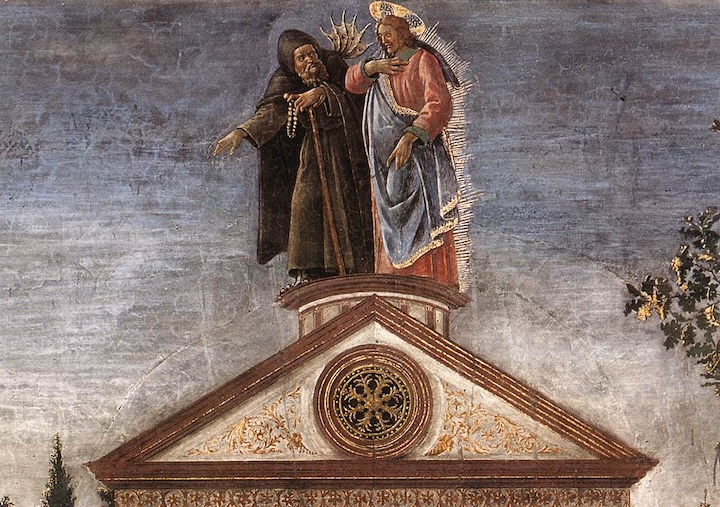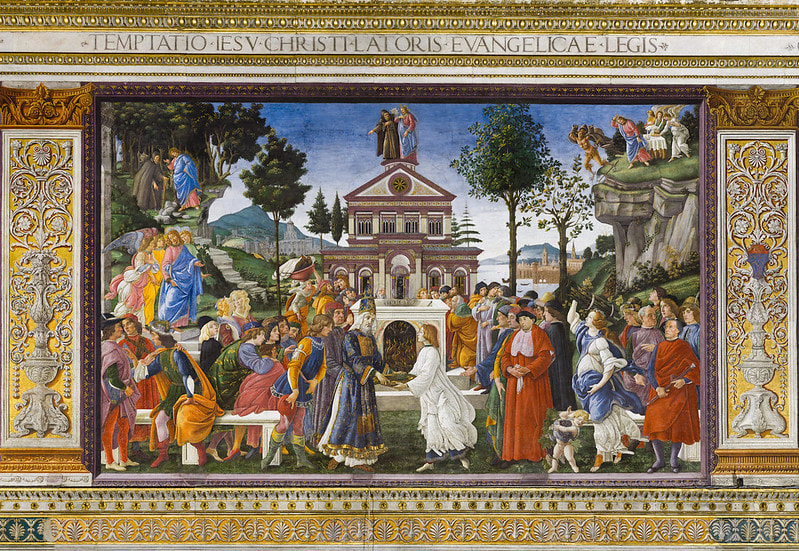The Gospel reading this year on the first Sunday in Lent is Mark’s summary account of Jesus’ temptations in the wilderness. Matthew’s Gospel provides a fuller depiction, and I will theologically examine both here.
To grasp the significance of Jesus’ temptations we first need to know what immediately preceded it. John the Baptist was baptizing in the Jordan in preparation for the coming of the Messiah. Jesus came to him to be baptized.
In the act of John baptizing Jesus, the heavens were opened, and the Spirit of God descended upon Him like a dove, whereupon a voice from heaven declared: “This is my beloved Son, with whom I am well pleased.”
Why is the Father pleased with his beloved Son, Jesus? He is delighted in Jesus, for by being baptized in the Holy Spirit, Jesus committed himself to do his Father’s will. This Spirit is the commissioning-Spirit, the Spirit that sends Jesus forth to his Father’s saving work, a work that will culminate in Jesus offering Himself as the perfect sacrifice. What John the Baptist’s baptism symbolized, Jesus’ saving death on the Cross achieved – the forgiveness of sins.
Mark’s Gospel then declares that “the Spirit drove Jesus out into the desert” where Satan tempted Him. These temptations bear upon Jesus’ faithfulness to doing his Father’s salvific will, and Matthew’s Gospel delineates the content of these trials.
Having fasted for forty days, Jesus was hungry. Taking advantage of Jesus’ vulnerability, the tempter said to Jesus: “If you are the Son of God, command these stones to become bread.” Yes, if you really are the Son of God as God says you are, then nothing could be easier than for you, in your hunger, to change stones into bread.
Jesus replies by quoting scripture: “Man shall not live by bread alone, but by every word that proceeds from the mouth of God.” (Deuteronomy 8:3) As God’s Word incarnate, Jesus, the Father’s beloved Spirit-filled Son, lives not by earthly bread but by faithful adherence to his Father’s command. He will not be deterred from laying down His life for the world’s salvation.
During Lent, Catholics are exhorted to fast. Such fasting reminds us that we too do not live on bread alone, but as the Father’s sons and daughters are, like Jesus, to be faithful to our Father’s life-giving word, that is, we are to be loyal to Jesus Himself, in whom we have eternal life.
The Devil next takes Jesus to Jerusalem and sets him on the pinnacle of the temple, where he says to Jesus that if He really is the Son of God, he should cast Himself down, for angels will bear Him up and He will not be harmed. This first appears to be a bizarre temptation. What would it achieve? Satan is tempting Jesus to make a spectacle of Himself. Everyone would marvel at such a sight. People would be mesmerized by His very presence.

Jesus refuses to be a superstar or celebrity. He will not use His divine power for self-aggrandizement. He reminds the Devil that it is written: “You shall not tempt the Lord your God.” (Deuteronomy 6:16)
God has the power to do spectacular things, yet it’s diabolical to tempt Him to employ his divine power for selfish purposes. That would be beneath both his dignity and his love, a love not for Himself, but for His children.
Deeply sown within our fallen nature is the desire to be someone. We want to be important, to have others admire us and to think highly of us. Lent is a time wherein we seek to put this self-aggrandizement to death. Instead, we strive more earnestly to care for others – especially the poor and the needy. In so doing, we conform ourselves into the likeness of God, for we love as He loves.
We lay down our lives for our spouses, children and grandchildren, and relatives, neighbors, and friends – even those that we might consider enemies. Such is our Father’s will for us.
Lastly, the Devil takes Jesus to a high mountain and displays before Him all the kingdoms of the world with their glory. The Devil declares: “All these I will give you, if you fall down and worship me.”
The kingdoms of this world, with their earthly power and might, their wealth and prestige, belong to the Devil. Satan’s greatest triumph would be to have Jesus, the Son of God, bow down in worship of him, for from the beginning he was jealous that he was not himself God.
Jesus has had enough of Satan’s tomfoolery. He commands him to be gone at once, for it is written: “You shall worship the Lord God and him only shall you serve.” (Deuteronomy 6:13) Jesus only worships his Father, and, in the love of the Holy Spirit that descended upon Him at baptism, will obediently serve the Father alone – even unto death on the Cross. Through His death and resurrection, Jesus establishes not an earthly kingdom that will pass away but a heavenly kingdom that lasts forever.
St. Paul states that “the love of money is the root of all evils,” and that those who seek it plunge themselves “into ruin and destruction.” (1 Timothy 6:9-10) Yet the world is populated by those who believe that wealth will bring them happiness, and fall prey to Satan’s trap. In worshiping the glitter of this world, they become blind to the splendor of eternal life in Christ Jesus, who became poor that we might become rich. (Cf. 2 Corinthians 8:9)
During Lent, we are to forsake the deceitful, devilish glamor of this world and lay hold of the true riches that can only be found in Jesus – the promise of eternal life in God’s everlasting kingdom.
The Letter to the Hebrews informs us “that we have a great high priest who has passed through the heavens, Jesus, the Son of God.” While on earth, like us, he was tempted in every respect, “yet without sinning.” Therefore, during this time of Lent, “let us then with confidence draw near the throne of grace, that we may receive mercy and find grace to help in time of need.” (Hebrews 4:14-16)
















